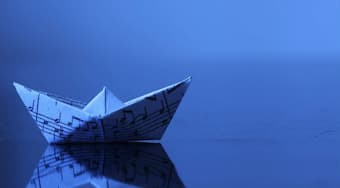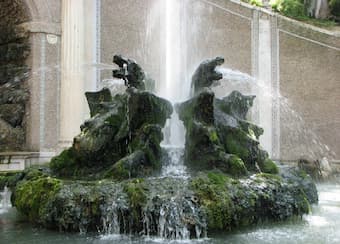 The piano seems to me to be the perfect instrument to convey the patter of raindrops, downpours and showers, the play of water in fountains, the shimmering sea lit by the sun, and the serenity of calm waters…..as these water-inspired pieces reveal.
The piano seems to me to be the perfect instrument to convey the patter of raindrops, downpours and showers, the play of water in fountains, the shimmering sea lit by the sun, and the serenity of calm waters…..as these water-inspired pieces reveal.
Ravel: Jeux d’eau
Perhaps one of the most famous piano pieces inspired by water, Ravel’s glittering writing here conveys the play and dance of water in fountains in glorious, glittering figurations and shimmering notes.
Maurice Ravel: Jeux d’eau (Stewart Goodyear, piano)
Debussy: Jardins sous la pluie (gardens in the rain)
This miniature from Debussy’s Estampes suite is a work of great virtuosity, its continuous semiquaver figures evoking the patter of raindrops during a particularly violent storm. In addition to sounds of rain, Debussy cleverly portrays wind and a thunderstorm.
Claude Debussy: Estampes – Jardins sous la pluie (François-Joël Thiollier, piano)
Liszt: Au Bord d’une Source
In contrast to Debussy’s rainstorm, this piece from the first year of Liszt’s Années de pèlerinage joyfully evokes a mountain spring and the fresh clarity of the water bubbling from the ground and trickling down the hillside in a bright stream.
Franz Liszt: Annees de pelerinage, 1st year, Switzerland, S160/R10 – No. 4. Au bord d’une source (Beside a Spring) (Jenő Jandó, piano)
Berio: Wasserklavier (water piano)
Wasserklavier by Italian composer Luciano Berio (1925-2003) is the first of six short pieces written between 1965 and 1990, published as 6 Encores, and including other pieces entitled Erdenklavier (Earth Piano), Luftklavier (Air Piano), and Feuerklavier (Fire Piano). The idiom of the piece is entirely modern, yet it evokes the intimacy and nostalgia of Brahms’s last piano works. In its simple, elegant form it evokes the purity of water, one of the four elements.
 Takemitsu: Rain Tree Sketch II
Takemitsu: Rain Tree Sketch II
The name of this work was probably inspired by a quotation from a novel by Kenzaburō Ōe about the miraculous rain tree, whose tiny leaves store up moisture and continue to let fall raindrops long after the rain has ceased. The work is also a meditation on the flow of life, and was the last piano piece from Takemitsu. The opening and closing sections employ a delicate treble figure which evoke the gentle patter of rain on leaves.
Toru Takemitsu: Ame no ki sobyo II (Rain Tree Sketch II), “In memoriam Olivier Messiaen” (Yu Kosuge, piano)
Amy Beach: By the Still Waters
Inspired by one of the Psalms, Amy Beach wrote this piece following the death of a loved one. A simple bass melody and twining, repetitive treble figure create a contemplative, poignant mood and suggest water hardly ruffled by a breeze.
Amy Beach: By the Still Waters, Op. 114 (Kirsten Johnson, piano)
Einaudi: Le Onde (The Waves)
Perhaps Einaudi’s most popular piano piece, Le Onde is minimalist in style, lyrical and flowing with a texture that gradually builds up around a melody in the treble and long, fast arpeggios in the bass. Its undulating accompaniment and repetitions imitate the mesmeric ebb and flow of the sea.
For more of the best in classical music, sign up to our E-Newsletter



Chopin prelude op28 # 15 ? Raindrops in a nunnery should be included in piano music for water
Also: Am du wasser du singen by Schubert, and the piani sol transcription by Liszt.
Ondine by Ravel
Legende St Paolo walking on the waves, by Liszt
Liszt: Fountains Villad’este
Liszt: By the Lake Wallenstadt
Chopin: Raindrop prelude
Love these pieces, classical music is so evocative of all nature.
The Fountain of the Acqua Paola– Charles Griffes